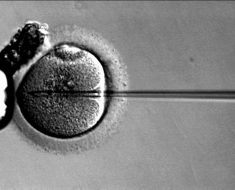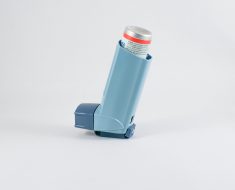Electric shocks delivered by subcutaneous defibrillators are equally effective compared to shocks delivered by conventional transvenous defibrillators, according to a study published in the journal Circulation.
These findings bolster the evidence that subcutaneous defibrillators are a reasonable alternative to transvenous deifbrillators, which are not compatible with all patients, according to Alexandru Chicos, MD, '09 GME, associate professor of Medicine in the Division of Cardiology and a co-author of the study.
"This trial brings additional confirmation that subcutaneous defibrillators are an effective therapy," Chicos said.
Implantable cardioverter-defibrillators (ICDs) can improve survival for those at risk for ventricular arrhythmias and sudden cardiac death. Typical ICDs are placed in the left shoulder area, and leads are fed through a vein and implanted into the heart. However, this format limits who is able to receive the ICD, according to Chicos.
Some patients may not be able to receive a transvenous device because of blocked veins, or may opt to avoid the potential complications associated with long-term presence of defibrillator leads in the veins. Hardware that stays in the blood vessels for a long time, more than one year, can get scarred in place and can be difficult to remove if the need arises."
Alexandru Chicos, MD, '09 GME, associate professor of Medicine in the Division of Cardiology and co-author of the study
Instead of wire leads in blood vessels, subcutaneous ICDs are implanted closer to the heart, next to the ribcage and use an electrode to deliver electric shock — no blood vessel or heart wires required. Importantly, subcutaneous ICDs cannot function as a pacemaker and are unable to provide anti-tachycardia pacing, a form of therapy for some life-threatening rhythms such as ventricular tachycardia.
Previous studies have shown subcutaneous ICDs are equally effective at improving survival when compared to transvenous ICDs, but more specific measures regarding shock strength and frequency were lacking, Chicos said.
In the current trial, investigators measured the appropriateness of shocks and first shock efficacy: the proportion of first shocks that were able to convert an abnormal rhythm to a normal rhythm. 849 patients were included in the trial: 426 in the subcutaneous ICD group and 423 in the transvenous group.
In the subcutaneous ICD group, 86 patients had a total of 256 episodes with appropriate therapy, versus 78 patients in the transvenous-ICD group with 348 episodes. There was no statistical difference in the number of patients with appropriate therapy between the two groups, though patients in the subcutaneous ICD group had a higher risk of shocks overall.
Further, there was a higher incidence of electrical storms in the transvenous group — multiple ventricular arrhythmias over a short period of time.
For typical arrhythmias, the subcutaneous ICD was effective, Chicos said, and further work could bring all the capabilities of a transvenous device to the simpler and less invasive subcutaneous ICD.
"Subcutaneous defibrillators are equally effective to transvenous defibrillators. They seem to be associated with a higher risk of appropriate and inappropriate shocks, but they avoid long-term intravascular hardware and the potential complications associated with it," Chicos said. "Further research is needed in the area of anti-tachycardia pacing and its role in treating ventricular tachycardia. Technology under development may bring the capability of anti-tachycardia pacing to the subcutaneous defibrillator systems."
This study was supported by Boston Scientific.
Northwestern University
Knops, R.E., et al. (2021) Efficacy and Safety of Appropriate Shocks and Antitachycardia Pacing in Transvenous and Subcutaneous Implantable Defibrillators: An Analysis of All Appropriate Therapy in the PRAETORIAN trial. Circulation. doi.org/10.1161/CIRCULATIONAHA.121.057816.
Posted in: Device / Technology News | Medical Research News | Medical Condition News
Tags: Blood, Blood Vessel, Blood Vessels, Cardiology, Defibrillator, Efficacy, Electric Shock, Electrode, Frequency, Heart, Medicine, Pacemaker, Research, Sudden Cardiac Death
Source: Read Full Article





